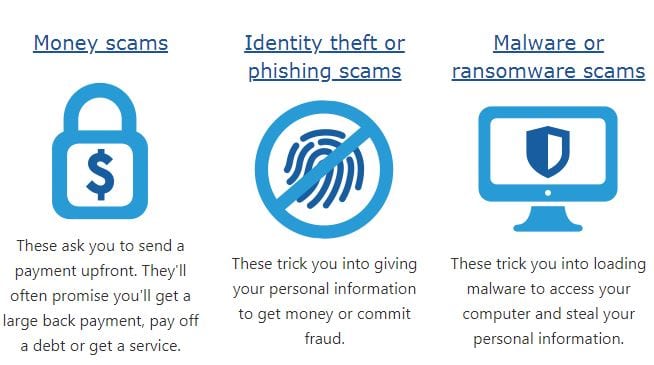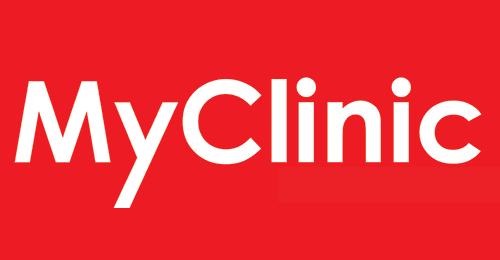SCAM ALERT! November 2018
The Department of Human Services and police are warning people about a new con where scammers pretend to be from Medicare in order to gain personal information.
Scammers have produced a new text-based, phishing scam that tricks people into visiting a clone of the Medicare website. Here, victims are conned into giving up their personal details in order to “claim a rebate”. These fake messages are being sent out in large numbers and are trying to steal your sensitive personal details and use them for malicious purposes
Scammers are currently sending SMS messages pretending to be from Medicare. They claim you have rebates owed to you and ask you to provide personal details. DO NOT click the link or reply to the SMS. Delete the SMS and report it to Scamwatch.
Scammers may contact you by email, SMS, social media, phone, post or in person. At the moment, DHS are aware of 3 main types of scams pretending to be from them.

How to stay safe
SMS & Email continues to be a popular method for criminals hoping to trick you into handing over your money or personal information.
Tip: Be wary – don’t click on links in unexpected emails or messages from people or organisations you don’t know.
There are some simple steps you can take to avoid an email scam:
- Do not click on links in emails or text messages claiming to be from MyGov or Medicare. MyGov will never send you a text, email or attachment with hyperlinks or web addresses.
- Don’t open messages if you don’t know the sender, or if you’re not expecting them.
- Be suspicious of messages that aren’t addressed directly to you, or don’t use your correct name.
- Login to your official MyGov account by typing the web address my.gov.au into your browser to check your inbox for any legitimate emails from Medicare. Check that https:// appears at the beginning of the address bar when you land on the site.
- You can also contact Medicare separately to check if they have sent the message.
If you are concerned that your personal information has been compromised and misused, you can contact Australia’s National Identity and Cyber Support Service, IDCare or use their free Cyber First Aid Kit.
If you have been a victim of a cybercrime such as fraud, report it to the Australian Cybercrime Online Reporting Network (ACORN).
Actions to take if you’ve been scammed
If you gave personal information to a scammer pretending to be DHS/Medicare, MyGov, you should immediately call their department’s Scams and Identity Theft Help-desk. Ensure that you write down as much information about the scam as possible.
Call them immediately if you gave personal information to a scammer, including your:
- identity documents
- Centrelink Customer Reference Number (CRN)
- name and date of birth
- Medicare card number
- sign in details, or
- bank account details
Also call them if you’ve:
- paid money to a suspected scammer
- bought gift cards or vouchers for a suspected scammer
- downloaded fake apps or visited websites pretending to be official department apps and sites
More Information:
There are a range of organisations that provide support services and useful information.
- Scams and identity theft helpdesk: 1800 941 126
- Department of Human Services: https://www.humanservices.gov.au
- IDCARE is a free national identity support service. Contact them if you think your personal or identity information has been misused.
- ScamWatch gives information about all types of scams.
- Stay Smart Online provides information about online scams and how you can protect yourself when online.
- Australian Cybercrime Online Reporting Network is a national government policing initiative for people to report and avoid cybercrime.
- MoneySmart provides information on investment, superannuation, managed fund, financial advice and insurance scams.

